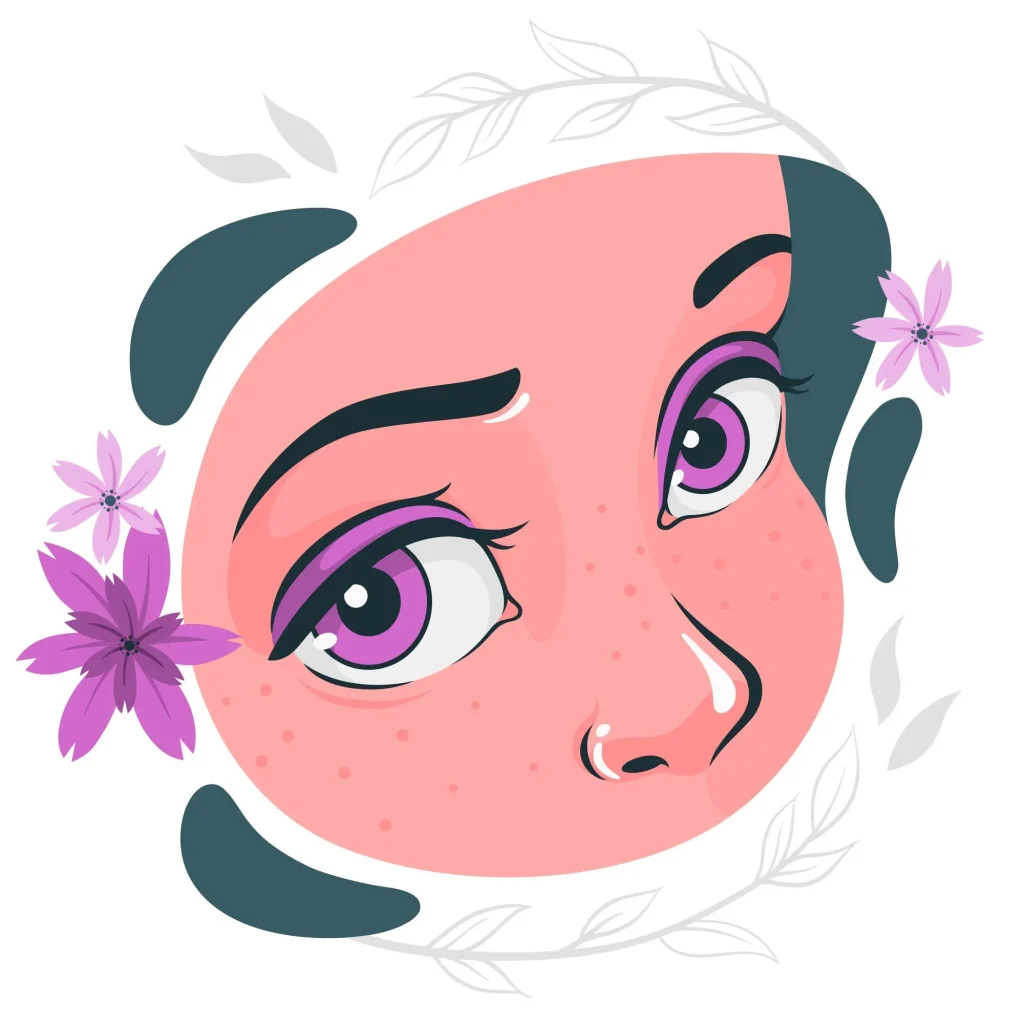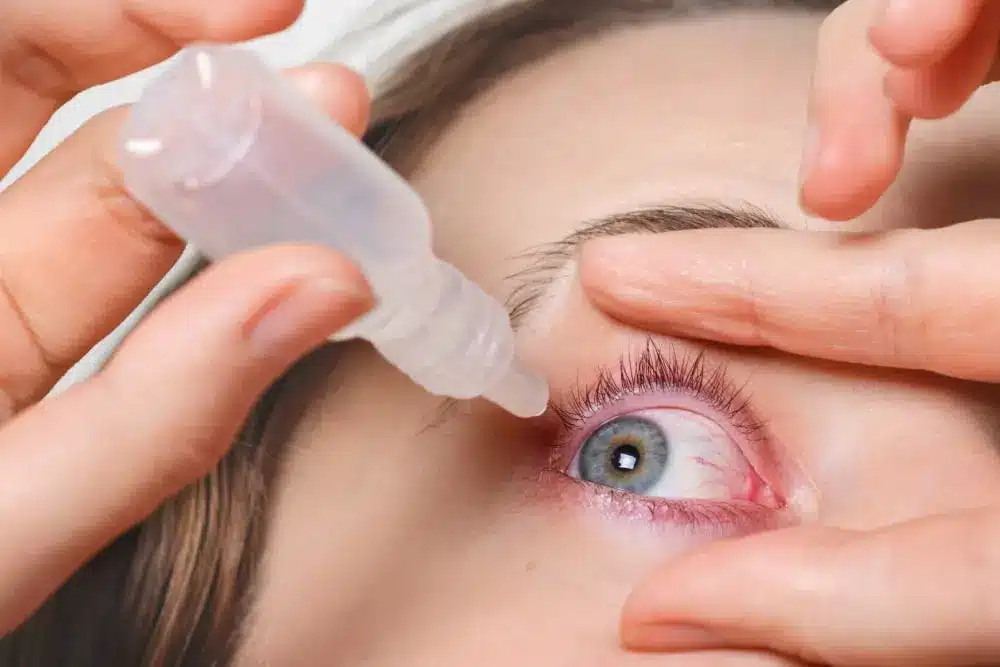When it comes to eye redness and irritation, no one wants to take any chances. It is hard enough dealing with a common cold or allergies but trying to tell the difference between two different yet similar-looking illnesses can be even more difficult and confusing. That’s why we’re here today; let’s explore the differences between pink eye (conjunctivitis) and allergies, how they present themselves, potential treatments, and how you can identify which is which. Let’s dive right in as we will explain everything that you need to know about allergy eyes vs pink eye!
Overview of Allergy Eyes vs Pink Eye

The most common ailments of the eye can either be a contagious condition known as pink eye or an allergic reaction to environmental irritants. Pink eye is caused by a virus or bacteria and is highly contagious, being easily spread through physical contact with an infected person or object. Symptoms include redness, swelling, itching, and/or discharge of yellowish pus. Allergies cause similar symptoms but are due to a reaction to allergens like dust, pollen, and pet dander. Seasonal allergies are most common in spring and summer when outdoor allergens are more abundant while indoor allergens remain year-round. Treatment for pink eye involves avoiding contact with others and frequent cleaning of surfaces while treatment for allergies requires identification of the root cause followed by avoidance measures and/or medication as needed. It’s important to receive the correct diagnosis given both conditions share similar symptoms but requires different treatments.
Symptoms and How to Spot the Difference
allergy eyes vs pink eye
Identifying the difference between pink eye and allergies may seem tricky at first, but there are some key indicators to help make the distinction. With both types of eye irritations, common symptoms include redness, swelling, and itchiness. However, when it comes to the pink eye or conjunctivitis, there are often additional signs like pain in the eyes and a sense of something being stuck in them. As for allergies, aside from redness and itchiness, you might also see watery discharge that’s clear or slightly cloudy along with dry skin around the eyes. Knowing which type of eye irritation you’re dealing with is important for proper treatment; only a doctor can do a proper diagnosis.
Causes of Both conditions and Preventive Measures

When determining whether eye redness and itchiness stem from pink eye or allergies, understanding their causes is crucial. Allergic conjunctivitis, common in seasonal allergies, can be triggered by dust, pollen, pet dander, and ragweed. Conversely, pink eye may result from bacteria, viruses, or airborne irritants like smoke, makeup chemicals, or contact lenses. To prevent these conditions, prioritize a healthy lifestyle, ensure adequate sleep, and maintain good hygiene practices. These include regular handwashing and avoiding sharing towels or eyeglasses. All individuals should also avoid touching their eyes directly to prevent any kind of contamination that could cause either condition. Finally, it may help to stay away from places with high levels of allergens that trigger your allergic reaction
Treatment Options for Pink Eye vs Eye Allergies

When both pink eye and allergies occur, it is important to understand the difference between the two and determine how best to treat them. Fortunately, there are a variety of treatment options available for both conditions. For pink eye conjunctivitis- antibiotics may be prescribed in order to reduce inflammation and discomfort. Cool compresses and artificial tears can also help relieve symptoms temporarily. Allergies, on the other hand, can be treated with antihistamines or decongestants to reduce tissue swelling and improve breathing. Steroid drops can also be used to decrease irritation associated with pollen allergies. In severe allergic reactions, allergy shots from an allergist may be needed to build tolerance over time. To manage both pink eye and allergies, taking precautions like avoiding irritants is crucial to prevent further discomfort.
Home Remedies for Pink Eye and Eye allergies

Knowing the difference between allergy eyes vs pink eye can be tricky. However, if you suspect that your eye issues aren’t everyone else’s pink eye, you may be dealing with an allergy instead. Before you seek out medical advice, there are some home remedies to try in order to relieve the discomfort. A compress of warm water and a plain saline solution is great for both pink eye and allergies. Applying chilled cucumber slices to your eyes can also help reduce inflammation and pain associated with irritation caused by allergies. Lastly, let’s not forget about the tried-and-true method: keeping good hygiene by vigorously washing your hands! Taking these precautionary steps can lessen the symptoms of both pink eye and allergies.
When to See a Doctor for Either Condition?

Seeing a doctor for either pink eye or allergies can help you feel better faster and prevent the spread of infection. If your symptoms are particularly severe, it is recommended to seek medical attention immediately. Signs that you should see a doctor right away could include intense pain in the eyes, severe vision problems, discharge that is green or has an unpleasant odor, swelling of the eyelids or face, and persistent itching or burning. All of these symptoms can point to a more serious underlying problem that only a doctor can diagnose and treat. Additionally, if your condition does not improve after following self-care steps for pink eye or allergies, it is beneficial to consult with a medical professional to decide on the best course of treatment.
Read about: What is Couperose Skin?
Final Thoughts:
While pink eye and allergies may share similar symptoms, they are two very separate conditions. It’s crucial to distinguish between pink eye and allergies and understand their respective causes. Taking preventive steps like frequent handwashing and allergen-free environments can help prevent their development. If symptoms persist despite home remedies, consulting a doctor for prescribed treatment is advisable. Armed with knowledge about both conditions, you can make informed decisions about managing them effectively.







